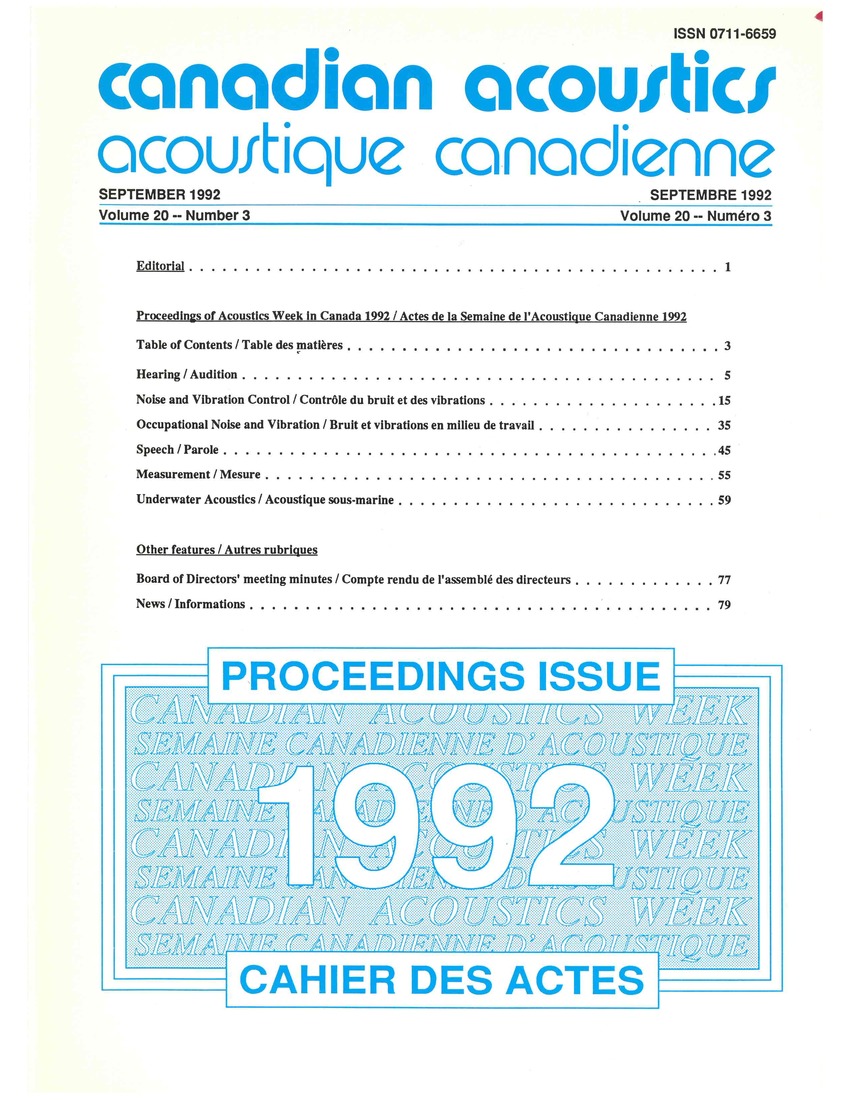Continued development of an IMELDA based voice recognition system for persons with severe disabilities
Mots-clés :
handicapped aids, speech recognition equipment, speech recognition system, front-end component, back-end component, dynamic programming, mel-scale fast-fourier-transform based spectral filter-bank analysis, linear transformation, IMELDA, linear discriminant analysisRésumé
The general design of the authors' speech recognition system is such that the acoustic features are first extracted from the speech signal in the front-end component. Subsequently, these features are passed on to the back-end component where they are compared with stored templates through the technique of dynamic programming. The front-end processing in their speech recognition system is a mel-scale fast-fourier-transform based spectral filter-bank analysis followed by a linear transformation. This linear transformation, which is called IMELDA, was developed and tested and is based on linear discriminant analysis. Comparisons with other systems indicate that it is the `state of the art' for front-end processing in a robust speech recognition system, outperforming other transforms and recognition systems, particularly in degraded speechFichiers supplémentaires
Publié-e
Comment citer
Numéro
Rubrique
Licence
Author Licensing Addendum
This Licensing Addendum ("Addendum") is entered into between the undersigned Author(s) and Canadian Acoustics journal published by the Canadian Acoustical Association (hereinafter referred to as the "Publisher"). The Author(s) and the Publisher agree as follows:
-
Retained Rights: The Author(s) retain(s) the following rights:
- The right to reproduce, distribute, and publicly display the Work on the Author's personal website or the website of the Author's institution.
- The right to use the Work in the Author's teaching activities and presentations.
- The right to include the Work in a compilation for the Author's personal use, not for sale.
-
Grant of License: The Author(s) grant(s) to the Publisher a worldwide exclusive license to publish, reproduce, distribute, and display the Work in Canadian Acoustics and any other formats and media deemed appropriate by the Publisher.
-
Attribution: The Publisher agrees to include proper attribution to the Author(s) in all publications and reproductions of the Work.
-
No Conflict: This Addendum is intended to be in harmony with, and not in conflict with, the terms and conditions of the original agreement entered into between the Author(s) and the Publisher.
-
Copyright Clause: Copyright on articles is held by the Author(s). The corresponding Author has the right to grant on behalf of all Authors and does grant on behalf of all Authors, a worldwide exclusive license to the Publisher and its licensees in perpetuity, in all forms, formats, and media (whether known now or created in the future), including but not limited to the rights to publish, reproduce, distribute, display, store, translate, create adaptations, reprints, include within collections, and create summaries, extracts, and/or abstracts of the Contribution.


